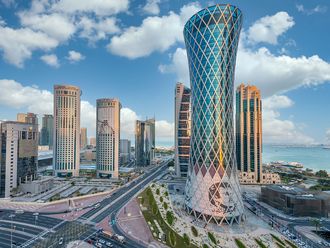
The presence of a parallel market, or ‘black market’ in common parlance, poses one of the most significant challenges to the economic stability of any country. The illegal activities carried on within this framework shows up in devastating consequences, potentially leading to an economic collapse and social unrest that threaten the nation’s stability and security.
It adds up to substantial losses for the state treasury, primarily due to tax evasion and failure to collect sales tax receipts. Such a loss exacerbates budget deficits and curtails public spending, thereby undermining essential public services and subsidies for basic commodities. The existence of an active black market also contributes to rapid currency devaluation, which can precipitate further set of crises if left unchecked.
The inherent difficulty in combating the shadow economy is akin to tilting at the windmills, reminiscent of the struggles depicted in Miguel de Cervantes' novel ‘Don Quixote’. Those who orchestrate illicit activities within the black market operate as elusive entities, often supported by organised criminal networks with substantial financial resources. These forces exploit their capabilities to generate substantial profits at the expense of the state and undermines its financial integrity.
A rerun of past issues
As a result, significant disparities arose between the formal and parallel market currency prices, often compelling governments to resort to currency float. This move necessitates bolstering the state's financial position and supplementing it with additional monetary reserves to mitigate adverse financial and monetary conditions. Such scenarios are unfolding in various countries, including Turkey, Iran, and numerous nations across the Arab world, Africa, and Latin America.
The status quo poses unpredictable risks with potentially devastating consequences, prompting the immediate implementation of measures to curb economic and social deterioration in a number of countries, including Arab ones that were affected by the ‘Arab Spring’, which, in its initial wave, failed to achieve its destructive objectives.
Given that governments are grappling with hidden forces akin to ‘windmills’, solutions to counter these must be resolute, based on sound policies, and free from corruption and bureaucracy. Corruption is considered a primary enabler of the shadow economy, acting as a lifeline for its persistence, expansion and prosperity, thereby exacerbating society's economic and livelihood crises.
Here lies a crucial aspect of economic policies, which can either exacerbate a crisis and fuel the growth of the shadow economy through ill-advised decisions, or can corner black market operators and significantly reduce their activities with the right and strategic direction.
The Malaysian response to its economic crisis in the 1990s serves as a poignant example, offering lessons on navigating similar financial and monetary challenges faced by some Arab countries today.
Make it fit-to-purpose
It's essential in this respect to steer clear of the one-size-fits-all solutions suggested by international bodies. Every country has its own unique economic, social, and financial landscape, meaning solutions must be tailored to fit these specific circumstances.
This approach allows for the development remedies that are truly effective for each country's situation.
The solution to mitigate the detrimental impact of the black market lies in implementing sound economic policies and ensuring effective enforcement. By making transactions in the parallel market financially burdensome and commercially unfeasible, coupled with rigorous campaigns against black market dealers and stricter legal penalties, the proliferation of informal transactions can be curbed.
It's noteworthy that significant political events coincided with the rise and expansion of parallel transactions in certain Arab countries, particularly the ones that endured the initial phase of the Arab Spring. Could the current trends - particularly the deliberate efforts to broaden the parallel market, compounded by currency depreciation and subsequent declines in living standards - signify a potential phase B of this turbulent period?
It's a possibility worth considering…









